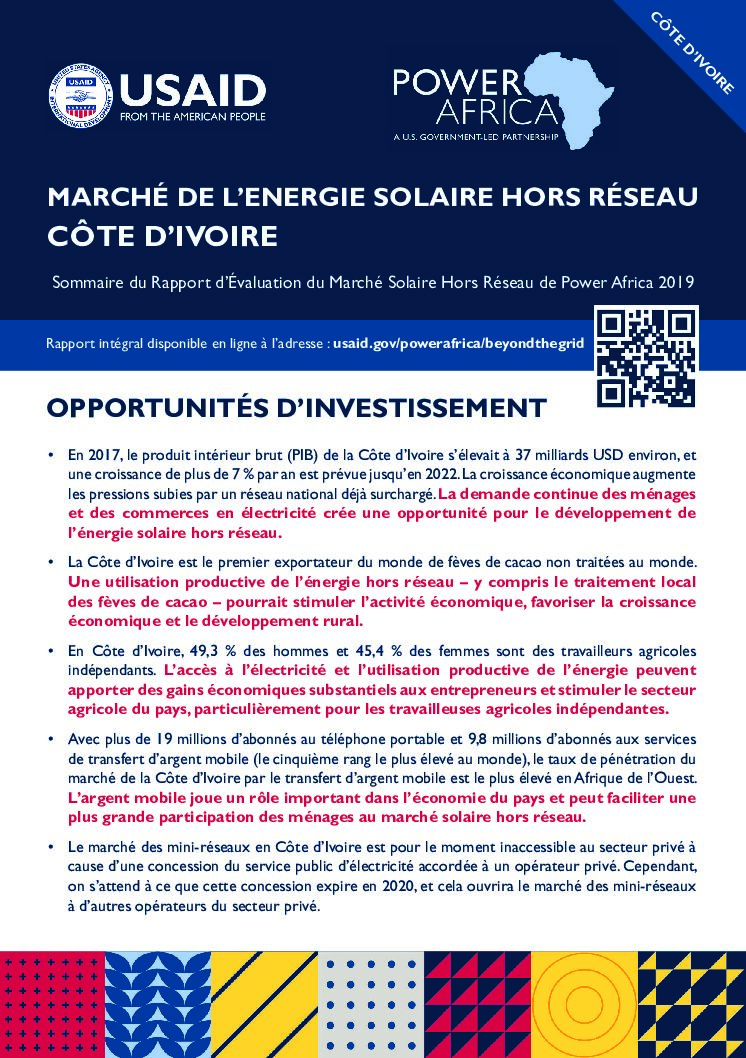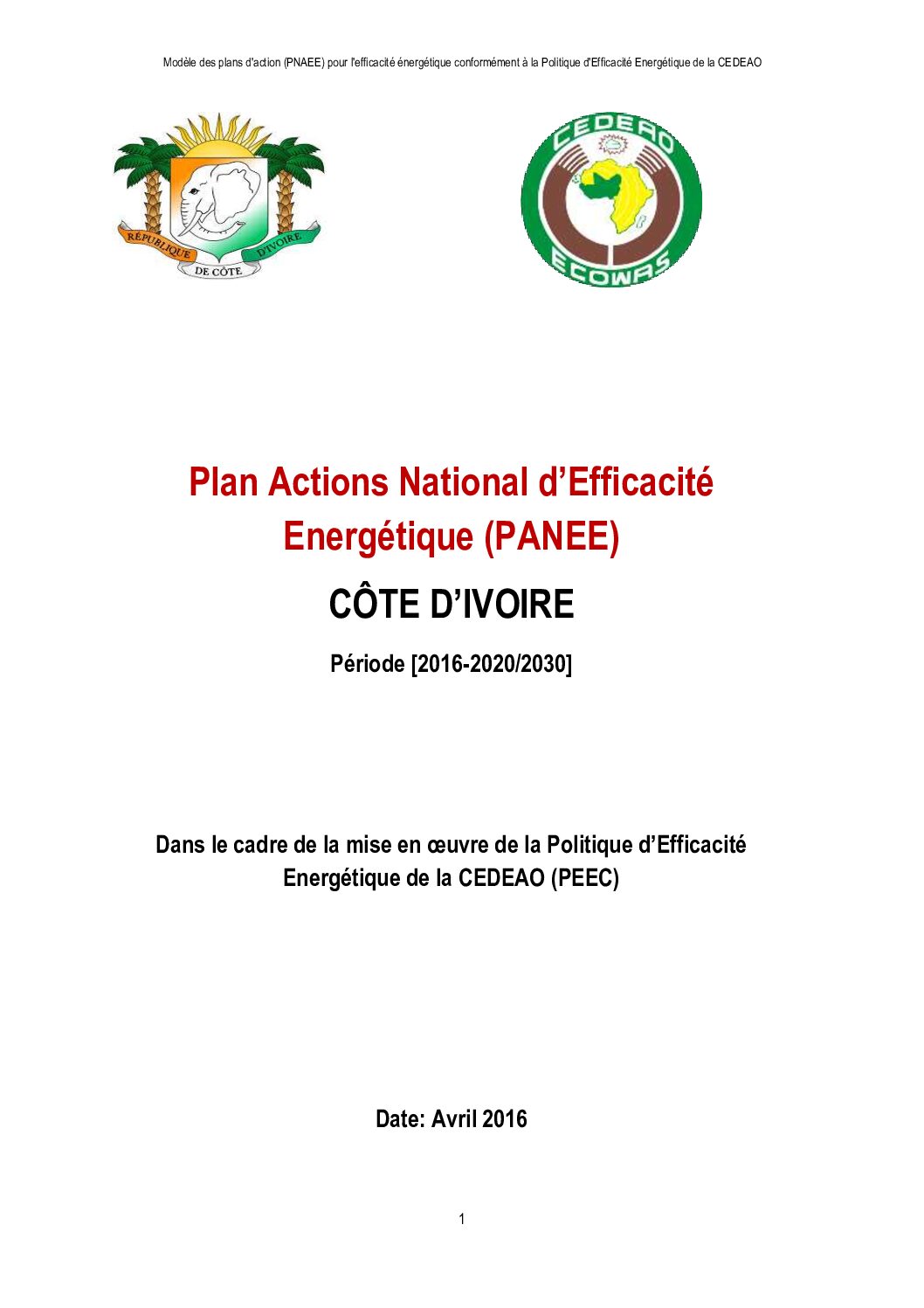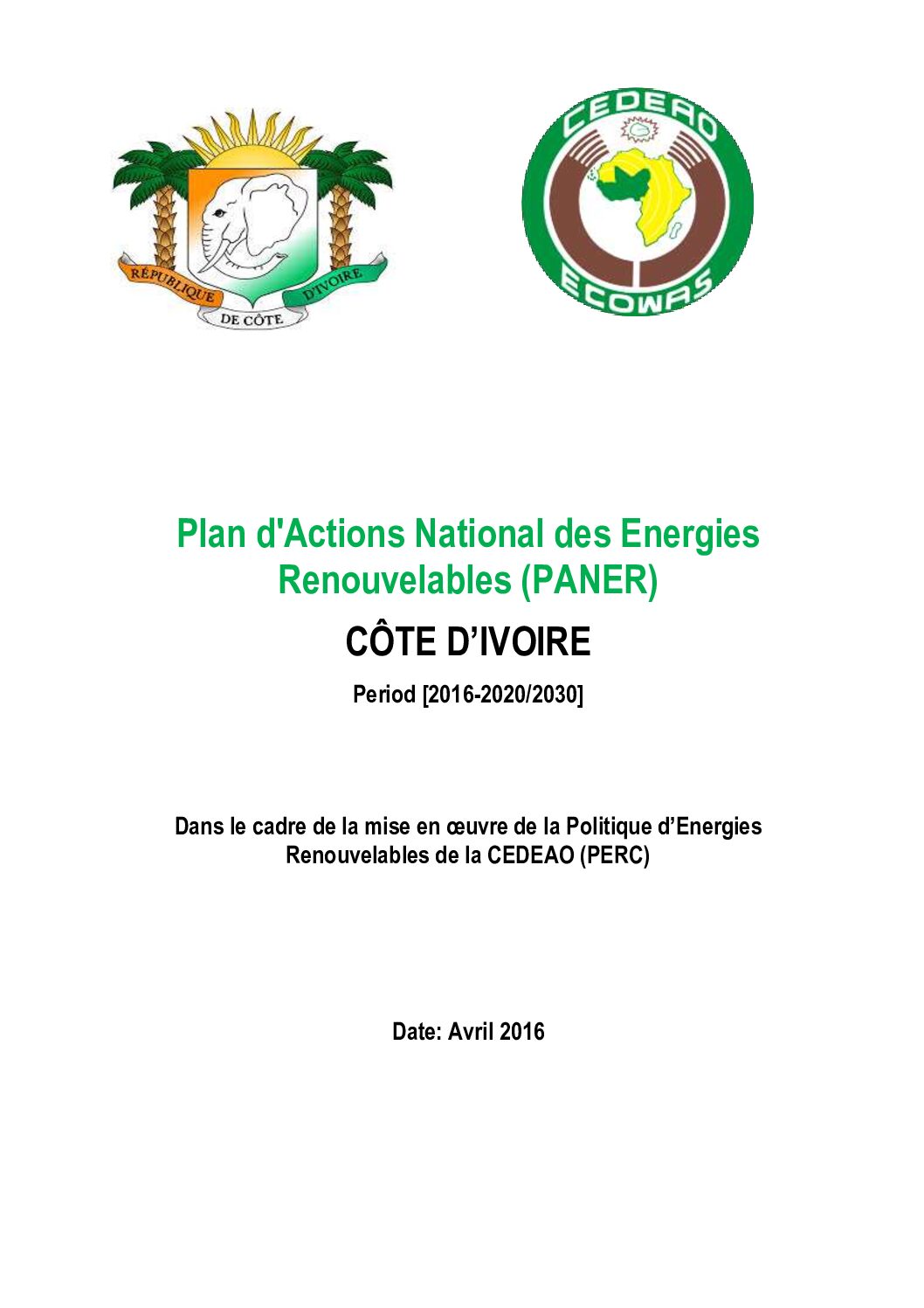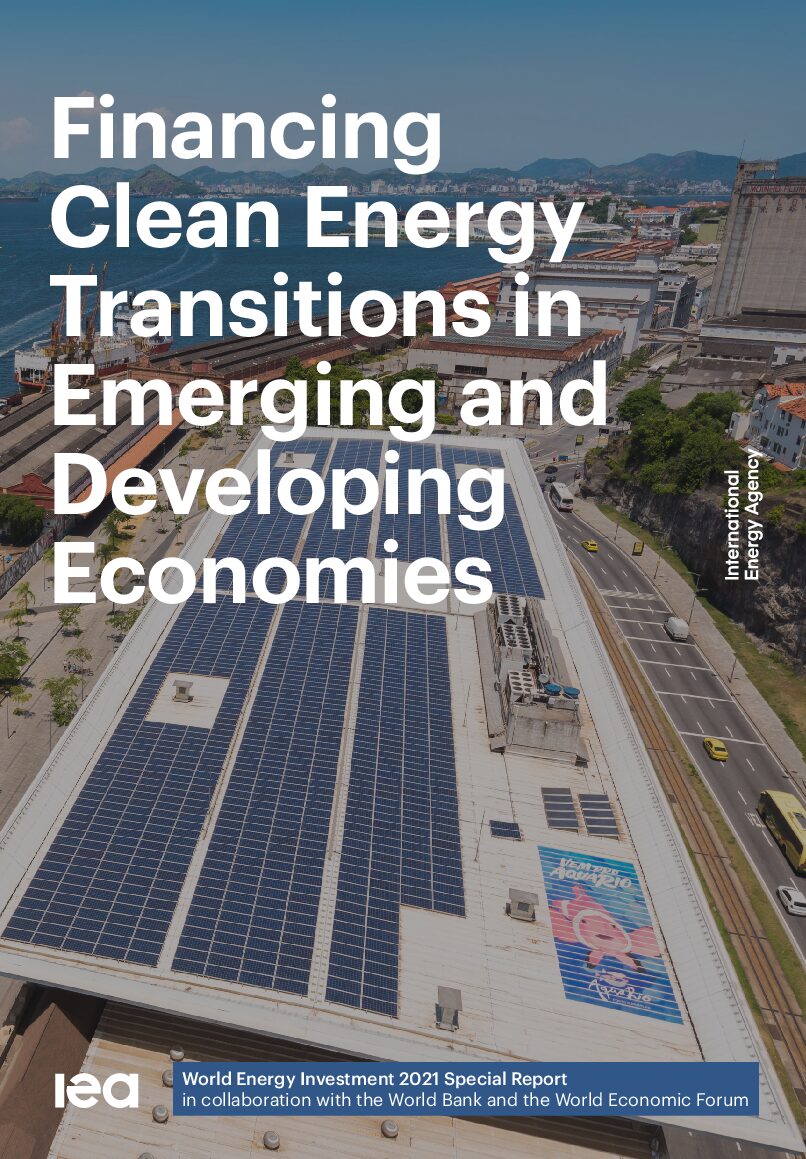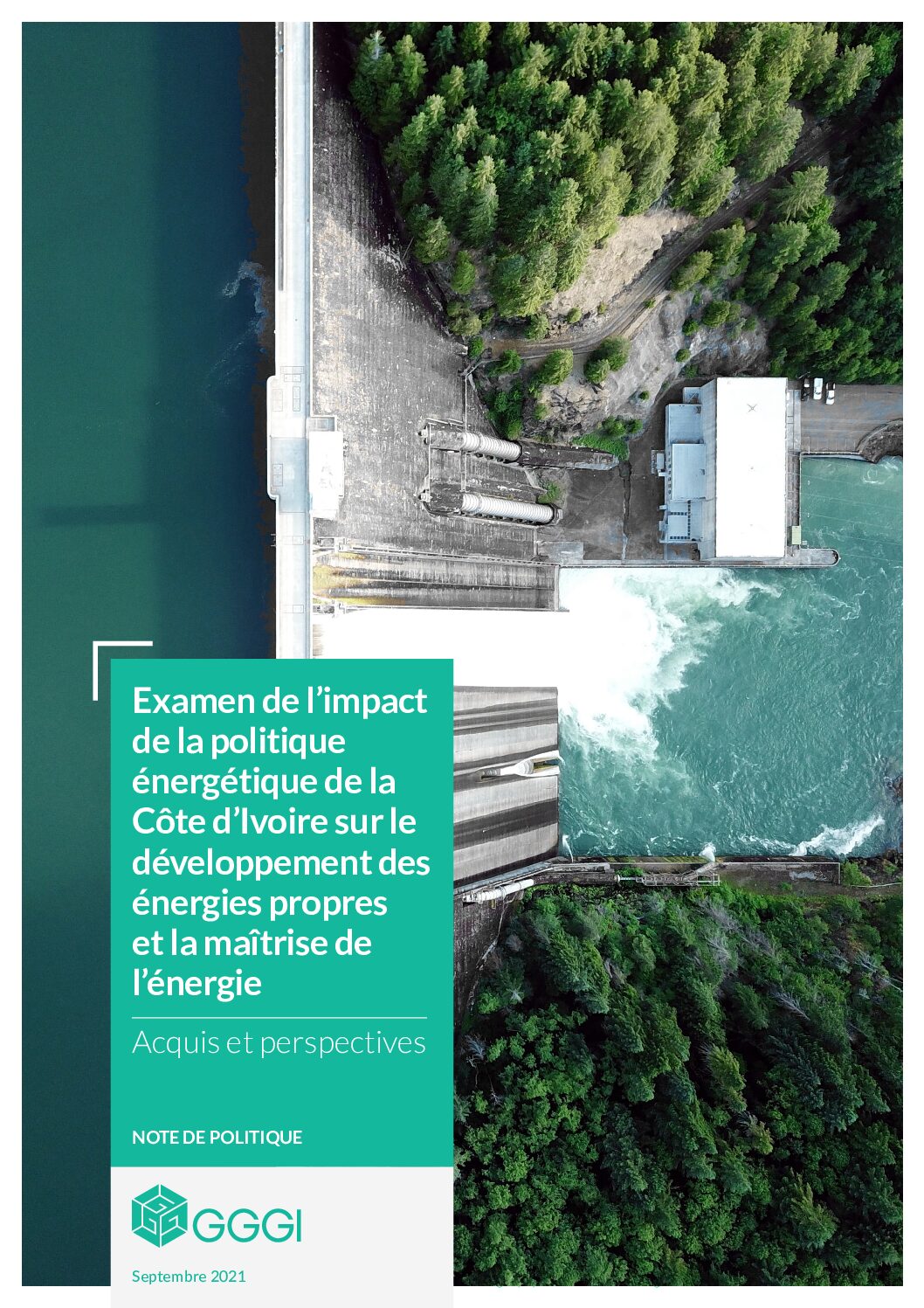This market assessment describes the off-grid energy market in Côte d’Ivoire.
This brief provides a high-level overview of the status of Côte d’Ivoire’s off-grid solar markets, as well as relevant policies and programs.
This action plan, developed with support from ECREEE, lays out the energy effiency strategy of Côte d’Ivoire for 2016-2020/2030. It includes extensive information on the context and relevant actors, as well as strategic priorities and measures to promote these.
This action plan, developed with support from ECREEE, lays out the renewable energy strategy of Côte d’Ivoire for 2016-2020/2030. It includes information on strategic priorities and measures to promote these.
This action plan, developed with support from SEforALL and ECREEE, lays out the energy access strategy of Côte d’Ivoire for 2016-2020/2030. It includes extensive background and context as well as information on strategic priorities and measures to promote these.
This website contains a range of learning resources on Integrated Resource Planning (a methodology for least-cost planning by public utilities), including load forecasting, tariff policies, amd demand side management. It also includes exercises and case studies.
This action plan, developed with support from ECREEE, lays out the bioenergy strategy of Côte d’Ivoire for 2021-2030. It includes an extensive background and context section, as well as strategic priorities and measures to promote these.
This report considers the challenges faced by developers implementing renewable energy projects in the SADC region, analyzes existing prefeasibility or early-stage project preparation funds in the region and globally to assess if they effectively support project developers, and provides recommendations on how to improve and scale up these facilities.
This report draws on nearly 50 case studies, on different energy transition-related sectors and issues and from all over the world, to distill recommendations for priority actions to get more investment flowing to under-served areas.
This memo investigates the main energy transition policy instruments adopted in Côte d’Ivoire over the 2012-2020 period, and examines their relevance, coherence, effectiveness and impact.

